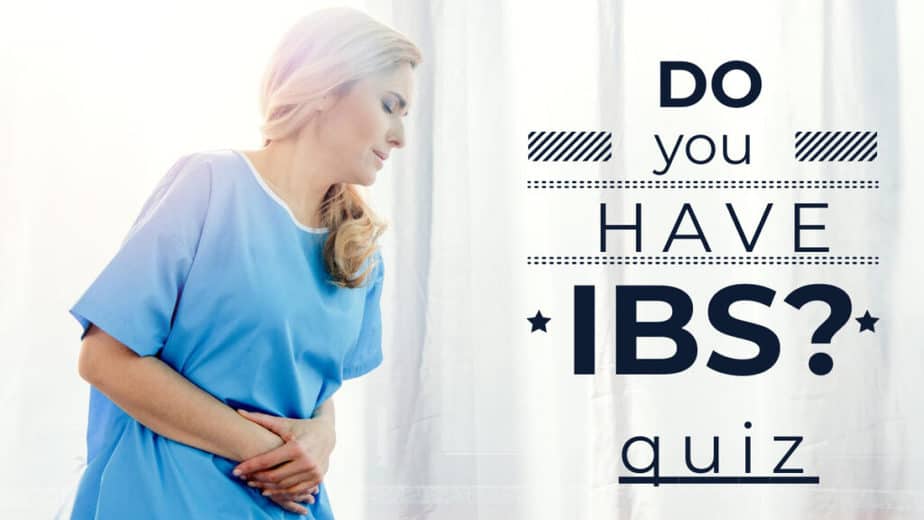IBS, or irritable bowel syndrome is a medical condition that affects the digestive system. It can cause pain in the stomach, bloating, diarrhea, flatulence and constipation.
IBS is one of the most common digestive disorders that affects millions of people every day. In the United States alone, it is estimated that between 25 and 45 million people suffer from IBS. As IBS is a problem with the digestive system, things such as food can exacerbate your condition and make the symptoms worse.
This is why many doctors may suggest certain dietary requirements for those of us with IBS. One of those recommendations is adding more fiber into the diet, but is this the best course of action if you have IBS?
This guide will help you understand how much fiber you should be eating, and what effects fiber can have on someone with IBS. But first, let’s take a look at what fiber actually is.
What Is Fiber?
Fiber is the term used for carbohydrates that the body does not absorb. Most other carbohydrates are broken down and digested into sugar molecules, whereas fiber cannot be broken down. This means that fiber travels through the body undigested, and helps your body regulate sugars and creates good stools.
Fiber passes through your digestive tract pretty much intact, and helps to aid digestion, weight management, regulate blood sugar and cholesterol levels, and increase regularity in the digestive system. It can even help prevent colon cancer.
Fiber also works to keep the colon cells healthy for improved gut health, and helps to ward off bad gut bacteria.
What Does Fiber Do?
Fiber is an essential part of the diet. Fiber can increase the weight and size of your stools, and soften them, which makes them much easier to pass and helps speed up transit through the bowel.
This is essential if you suffer with IBS symptoms such as constipation, which is why many doctors will suggest adding more fiber into your diet if you have IBS.
Without fiber, you may have loose, watery stools, because the fiber helps to solidify stools and add bulk to help maintain your bowel health.
- Read more about how Fiber can act as a laxative for constipation.
Dietary Guidelines For Fiber
Everyone needs a good intake of fiber in their diet, however some people may need more than others. The USDA recommends that adult men get 38 grams of fiber every day, whereas women will need about 28 grams of fiber every day.
However, age can also play a role in how much fiber you need every day, so you should speak to your doctor if you are unsure how much is best for you and your diet.
Types Of Fiber
There are actually various types of fiber that you can incorporate into your diet. Natural fiber is only found in fruits, vegetables and whole grains, so it is entirely plant-based. There are two types of fiber; soluble and insoluble. But, what does this mean?
Soluble fiber is fiber that dissolves in water, which creates a gel-like texture or substance. This type of fiber aids in digestion as it helps to create soft, smooth and easy to pass bowel movements.
The other type of fiber is insoluble fiber. This type of fiber does not dissolve in water, which means that it stays intact, but therefore creates a lot of bulk. This type of fiber is perfect for adding bulk, size and weight to a stool, making it easier to pass through the digestive tract, and can stimulate movement in the bowel.
As insoluble fiber adds bulk, foods with this type of fiber can often cause some bloating and stomach pain, so keep that in mind when choosing what to eat. Learn more about Foods That Cause Gas.
Foods with insoluble fiber include nuts, green beans, potatoes, root vegetables, cauliflower, cabbage, beans, wheat bran, and whole wheat flour.
Foods that contain soluble fiber are typically things like peas, beans, lentils, oats, barley, apples, nuts, seeds, and citrus fruits.
Foods high in fiber are often recommended for those who suffer with IBS and symptoms such as bloating, diarrhea and constipation. So, what exactly is IBS?
What Is IBS?
IBS is the abbreviation for irritable bowel syndrome. This is a medical condition that affects the digestive system.
Symptoms may include stomach pain, cramps, bloating, diarrhea, constipation and tenderness. It can make you feel very full, so that you do not want to eat, and can make it difficult to pass stools.
IBS is a condition that usually lasts a lifetime, with periodic flares of symptoms that can last a few days, weeks or rarely even months.
Studies suggest that IBS may result from overactive nerves in the gut (a problem with how your gut and brain communicate). This can cause tenderness and stomach pain and alterations in your bowel habits (constipation, diarrhea, or back and forth between the 2), and can even be aggravated by stress or anxiety.
While there is no actual cure for IBS, the symptoms can be minimized with medication, good diet and exercise, along with some other lifestyle changes, like relaxation and stress management.
How Much Fiber Should I Have With IBS?
If you have been diagnosed with IBS, my guess is that you have a lot of contradictory information from different healthcare providers.
Many doctors recommend adding 25-30g of fiber, but it’s also necessary to be careful of taking too much fiber.
Adding more fiber to the diet can potentially worsen their IBS symptoms and increase bowel activity. This is because our good bacteria in our guts ferment fiber.
Now, when fiber is fermented by our gut, it can create a powerful by-product – gas. Therefore, adding more fiber can increase some symptoms of IBS such as flatulence, bloating, stomach discomfort, and pain. This can be decreased if you slowly increase the amount of fiber in your diet.
Some sufferers of IBS may also have an overgrowth of bacteria in the small intestine, which is called SIBO. This can also cause digestive problems similar to the symptoms of IBS.
Will A Low Fiber Diet Help IBS?
There is a lot of debate around whether fiber can assist those who suffer with IBS. The problem with IBS is that it affects people differently.
Some people may have IBS-M which stands for mixed IBS. This means that their symptoms can alternate between diarrhea and constipation. Fiber can be helpful in these cases as the added bulk will reduce watery diarrhea, but also increase the speed at which stool passes through the bowel, helping with constipation.
Adding large amounts of fiber too quickly will only cause more bloating, gas and abdominal distension. That being said, if fiber is eliminated from the diet for a short period of time, and then gradually re-introduced to the diet at a low level at first, then the symptoms related to fiber may be less severe.
Some fiber supplement options to look at include:
- Metamucil – Learn more about the Interaction of Metamucil and IBS
- Fibercon
- Benefiber
- Citrucel
Diets for IBS
With so many diet trends cropping up these days, it can be difficult to figure out what the best diet is for you based on your symptoms, medical conditions and goals for the diet, like weight loss or blood sugar control.
It may be helpful to discuss diet strategies with your doctor to help achieve your goals. Depending on their comfort level and expertise, they may also have you see a dietician to help with a specific diet strategy.
1. Low FODMAP Diet
You may want to try a low FODMAP diet, which has the most evidence in IBS patients, as this restricts the amount of fermentable carbohydrates that you can eat. These carbohydrates are fermented by the gut bacteria and produce a lot of gas, which can cause bloating and flatulence.
The low FODMAP diet is very restricted and not meant to be followed long term. For a short duration, a strict elimination phase followed by reintroduction of foods in a controlled manner may help you to identify foods that trigger your IBS symptoms.
Make sure to eat lots of the approved fruits, vegetables and high fiber grains to help get enough fiber in your diet during the elimination phase.
Learn more about Low FODMAP Diets for IBS Symptoms.
2. Paleo Diet
A paleo diet involves eating foods that were available to humans during the Paleolithic era.
Therefore, there are no processed foods allowed. Your diet will consist of things that humans could hunt and gather themselves during this time period.
As a result, the Paleo diet often consists of fish, fruits, vegetables, nuts, seeds and lean meats. Sugar, processed foods, legumes, grains, dairy and alcohol should be avoided.
Depending on the types of fruits, vegetables, and seeds you consume, getting adequate dietary fiber may be difficult.
- Related article: Is Dietary Fiber Good
3. Gluten Free Diet
In the last several years, the market has exploded with gluten free products, which used to be difficult to come by for people suffering from Celiac disease.
Gluten, a component of wheat, barley and rye, is sometimes not well tolerated. In people with positive blood markers and abnormalities in their small intestine, a diagnosis of Celiac disease is established.
In some people, they develop similar symptoms, like bloating and diarrhea, but lack the blood and intestinal changes. This is a condition called non-Celiac gluten sensitivity.
Avoiding gluten may help reduce your IBS symptoms. It’s important to see a doctor about your symptoms before beginning a gluten free diet, as Celiac disease needs to be diagnosed or excluded, so that you can be treated appropriately in the long term.
Getting adequate fiber on the gluten free diet shouldn’t be too hard – fruits, vegetables, beans and certain grains (quinoa, flax, and chia for example) are all good sources of fiber.
Learn more about in this in-depth Guide to a Gluten Free Diet for IBS.
4. Dairy Free Diet
Some people with diarrhea, bloating and gas find that they have trouble with lactose containing dairy products, like milk, ice cream, and cheese. Lactose intolerance is a common condition, and often as people age, they develop some lactose intolerance.
Switching to lactose free milk, oat, almond or soy milk, and avoiding lactose containing ice cream and soft cheese may help reduce symptoms. Consuming fiber shouldn’t be too hard if dairy is the only thing you are eliminating.
If you are uncertain about the possibility of lactose intolerance, see your physician. Formal testing can be done to evaluate this condition.
For more articles on IBS, check these out:


